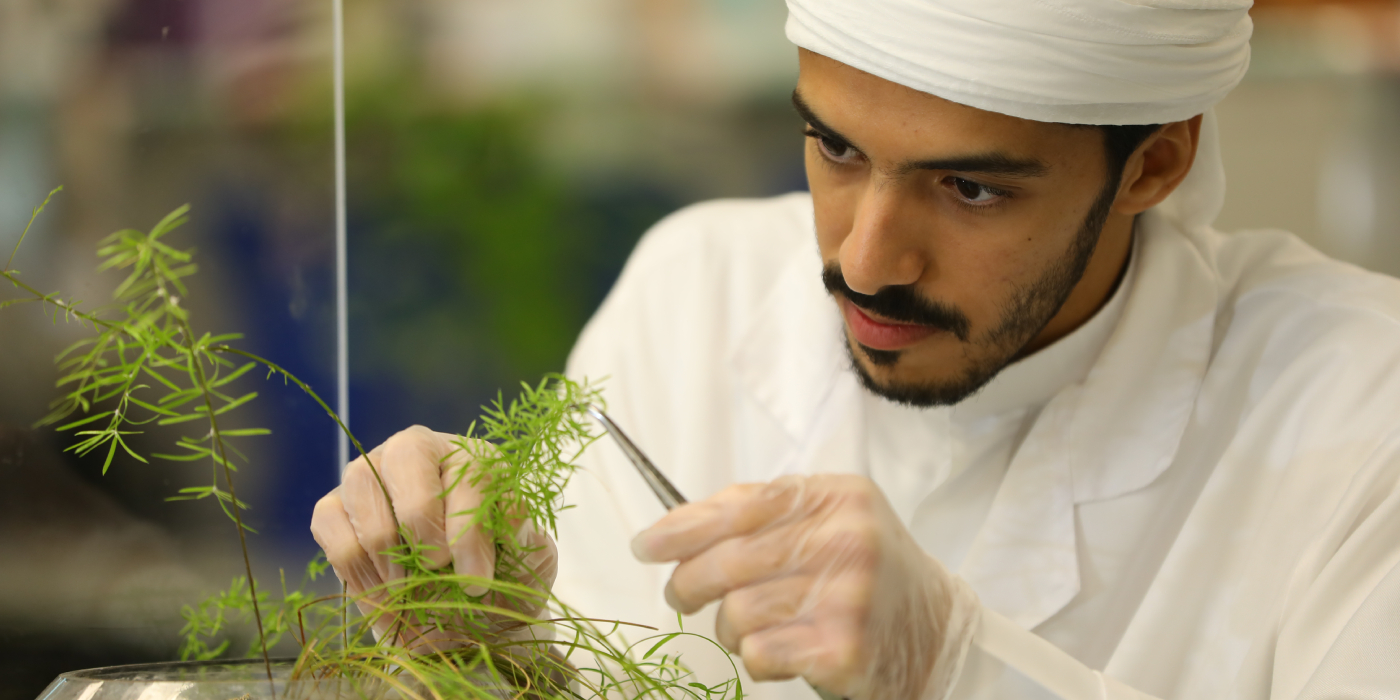Ground breaking Projects among the United Arab Emirates University’s Postdoctoral Fellowship for Climate Action
Sat, 30 March 2024

The United Arab Emirates University has announced a number of ground breaking projects
funded by the Postdoctoral Fellowship for Climate Action, to support the national
efforts for finding innovative solutions for climate change, and among the United
Arab Emirates University’s roadmap towards Cop 28 and Beyond (2023-2016).
Professor Dr. Ahmad Ali Murad, Co-Deputy for Scientific Research noted “The United Arab Emirates University’s Postdoctoral Fellowship for Climate Action is a leading example of combating climate challenges, and it is an important step towards building a more sustainable future for the next generations”. He added “These projects reflect the commitment of the United Arab Emirates University to supporting scientific research and innovation in the field of climate action and constitute a valuable contribution to providing next generations with a sustainable future”.
He stated “Supporting research projects that focus on climate action, reflects the university’s vision towards enhancing sustainable development and innovation in combating global climate challenges and its commitment to the principles of the “We are the UAE 2031” vision, which aims to achieve qualitative leaps in climate neutrality and to pave the way to a sustainable global future, and to provide a role model for adopting environment- friendly practices in economy and society”.
Among the projects funded by the program, which started in early 2014, is The Zn-CO2 – 0-degree Water Battery Technique Project. The project suggests a new strategy for stabilizing CO2, using resources, and energy production. The second project concentrates on the sustainable development of the bacteria and microalgae systems in the sewage system. The project will also study the efficiency of the two-function catalysts in converting harvested biomass into biodiesel fuel in one step, leading to a further reduction in the overall operational cost.
The third project will address the exploration of the untapped potential of new volatile organic compounds to enhance the growth of tomatoes and the protection against abiotic stress, with the focus on drought in light of the natural conditions inside the greenhouse environment. While the fourth project will focus on discovering new proteins and polysaccharide-based components to design fibrous, good tissue meat analogues that possess the closest possible sensory features of real meat. The project also aims to deliver this design to the UAE market to be circulated to create a more sustainable food system.
Do you find this content helpful?
عفوا
لايوجد محتوى عربي لهذه الصفحة
عفوا
يوجد مشكلة في الصفحة التي تحاول الوصول إليها

